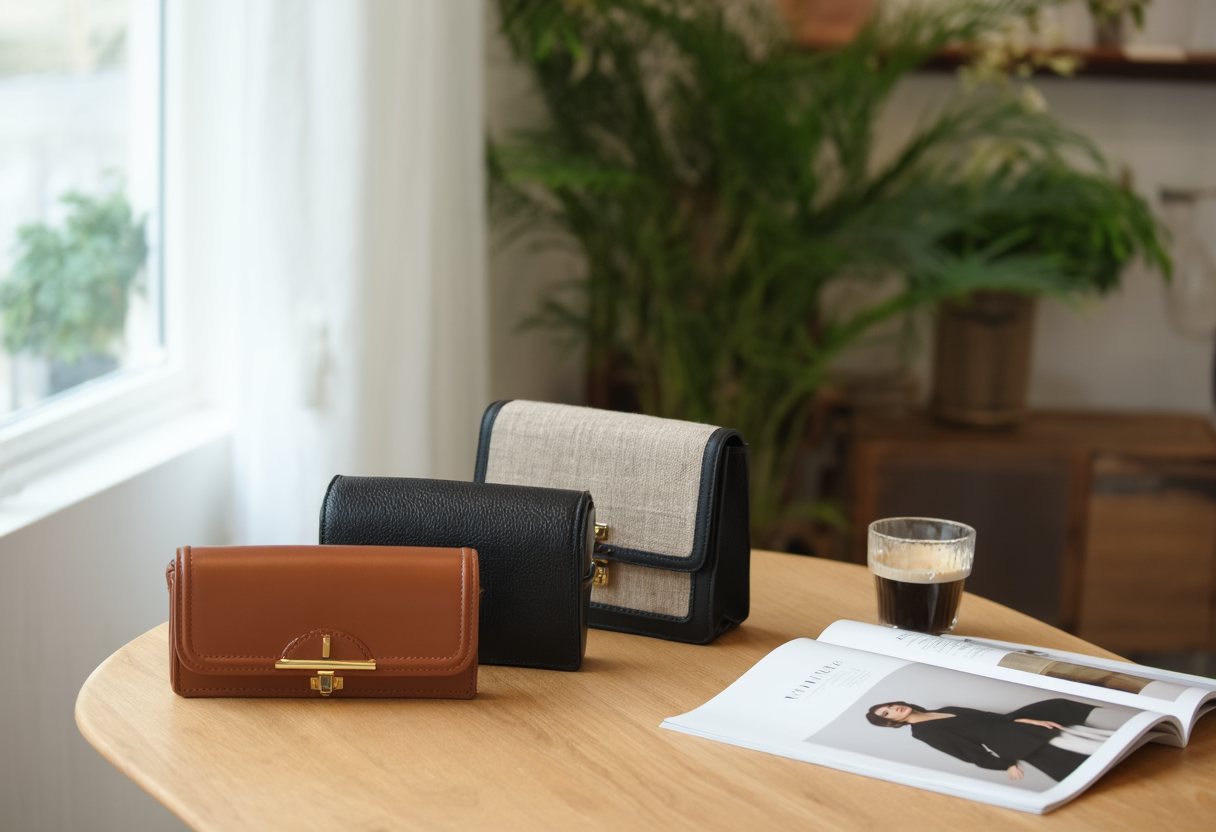Unlocking the Allure of Second-hand Designer Bags: A Sustainable Fashion Choice
The rise of second-hand designer bags signifies a shift in consumer behavior towards sustainable fashion. This article explores the allure of these luxury items, examining the economic, environmental, and social benefits tied to purchasing pre-owned bags. Discovering how these choices reflect personal values and contribute to sustainability, this piece highlights why second-hand designer bags are more than just fashion statements—they're thoughtful purchases for the modern consumer.
Understanding the Rise of Second-hand Designer Bags
The global trend of second-hand designer bags has gained immense popularity, highlighting a shift in consumer behavior towards sustainable choices. Second-hand designer bags not only offer luxury and quality but also serve as an eco-friendly alternative to fast fashion. By purchasing pre-owned luxury items, consumers contribute to a circular economy, reducing waste and minimization of the carbon footprint. Whether it is a Chanel or a Gucci, these bags tell a story that new items cannot offer. Furthermore, the online marketplace for second-hand designer bags has expanded significantly, making it easier for individuals to access high-end fashion at more affordable prices. In this evolving landscape, second-hand designer bags are becoming symbols of both elegance and responsibility.
The Economic Impact of Purchasing Second-hand Designer Bags
Economically, opting for second-hand designer bags can be a smart choice for many consumers. High-end brand items depreciate over time, which means that purchasing a pre-owned item can save significant money while still enjoying the luxury experience associated with designer names. Moreover, investing in second-hand designer bags may even yield high resale values, as certain pieces become collectible over the years. Platforms dedicated to selling authenticated second-hand designer bags have also emerged, enhancing buyer confidence and ensuring quality. This creates a vibrant marketplace where consumers can either source unique items or sell their bags at competitive prices, thus fostering a community around shared interests and sustainable practices.
Environmental Benefits of Choosing Second-hand Designer Bags
Purchasing second-hand designer bags plays a crucial role in promoting environmental sustainability. The fashion industry is one of the largest contributors to pollution and waste, with fast fashion being particularly harmful. By choosing second-hand designer bags, consumers are helping to mitigate these negative impacts. Each purchase reduces the demand for new products and diminishes the resources needed for manufacturing new items. Furthermore, this choice supports the idea of reusing and recycling within the fashion industry, making it a proactive step towards a more sustainable future in the luxury markets.
Social Implications of Second-hand Designer Bags
The social implications tied to second-hand designer bags shape an evolving narrative around luxury and status. Once perceived as exclusive and elitist, luxury fashion is gradually embracing inclusivity through reselling. Purchasing second-hand designer bags allows consumers to express their individuality without the prohibitive price tags of new luxury items. Additionally, it encourages dialogue around sustainable fashion, instigating changes in consumer values that prioritize ethical consumption. As a result, second-hand designer bags also become a mode of self-expression—reflecting personality rather than mere status—a significant shift in how society perceives luxury.
The Cultural Shift Towards Second-hand Designer Bags
Culturally, the social landscape surrounding fashion is shifting, with second-hand designer bags occupying a central role. This cultural shift represents a broader movement towards valuing experiences and stories behind items rather than just the items themselves. In the age of social media, fashion enthusiasts share their unique finds, showcasing individual styles and sustainable lifestyles. This phenomenon supports the idea that second-hand designer bags are not just purchases, but part of a lifestyle choice that emphasizes creativity, history, and conscious consumerism. As more influencers adopt second-hand shopping habits, it helps destigmatize previous notions of retail privilege.
Conclusion: Embracing Second-hand Designer Bags for the Future
In conclusion, the fascination with second-hand designer bags reflects a multifaceted shift in consumer behavior towards sustainability, economic sensibility, and cultural evolution. These purchases resonate with the values of today's consumers, who seek luxury not just for status but for its story and purpose. By embracing the world of second-hand designer bags, individuals are participating in a movement that champions both elegance and responsibility, heralding a new era in the fashion industry. A carefully chosen second-hand designer bag is not just a smart purchase; it’s an investment in a sustainable future.
